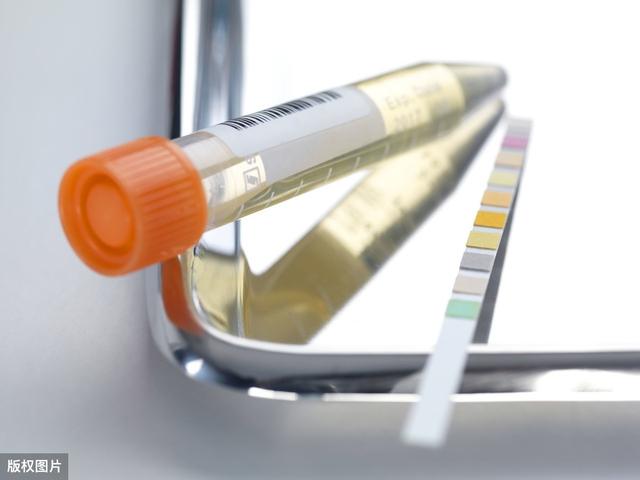Is it possible to get pregnant with diabetes or diabetic nephropathy?
Shandong Zaozhuang, 67-year-old pregnant mother of one daughter is diabetic, this case can be seen, diabetics can get pregnant, but it is very important to do a good job of preconception preparation. As a matter of fact, we see many patients with diabetes in pregnancy or gestational diabetes every day.
People with diabetes can get pregnant if their blood sugar control is relatively satisfactory, and good pre-pregnancy preparation is a basic safeguard to ensure a smooth pregnancy.
For women of childbearing age with diabetes who are planning to become pregnant, it is important to keep their blood glucose stable for at least 3 months prior to the planned pregnancy and to stop all oral hypoglycemic medications and switch to insulin therapy. This is because our Food and Drug Administration has not yet approved any oral hypoglycemic medication for use in pregnant women. Insulin is the only hypoglycemic medication that can be used during pregnancy.
In the preparation for pregnancy with insulin hypoglycemia, the presence of complications such as diabetic retinopathy, diabetic nephropathy, neuropathy, and cardiovascular disease are evaluated prior to the planned pregnancy. In patients with a long history of diabetes, the degree of atherosclerosis of the pelvic floor arteries is also evaluated to ensure blood supply to the uterus.
Diabetic retinopathy may rapidly worsen during pregnancy, so patients with diabetes who are almost or definitely pregnant should have a funduscopic examination to confirm the presence of proliferative retinopathy, and laser treatment to reduce the risk of exacerbation of diabetic retinopathy.
Changes in the fundus should be closely monitored during pregnancy until 1 year postpartum.
Kidney damage is almost always present in patients with diabetic fundopathy, and these two tests should be done at the same time to corroborate each other.
Patients with diabetic nephropathy may have a hypoproteinemic state in many patients due to the presence of protein loss. Due to the nature of the disease and the restriction of protein intake, which is 0.8-1.0 g/kg body weight in diabetic nephropathy and 1.0-1.2 g/kg body weight in non-nephropathic diabetic patients, this group of pregnant women is very susceptible to swelling and should be closely monitored.
Diabetic nephropathy patients with normal renal function, if the blood glucose control during pregnancy is ideal, then the impact of pregnancy on renal function is relatively small. For patients with more severe renal insufficiency, such as blood creatinine more than 265umol/L or creatinine clearance less than 50ml this, pregnancy may cause permanent damage to the patient's renal function. Hyperemesis gravidarum may also occur during pregnancy, leading to cerebral hemorrhage and other serious consequences, so it is not recommended that patients with renal insufficiency risk pregnancy.
To summarize: It is very important for women of childbearing age with diabetes to prepare for pregnancy if they plan to become pregnant. It is important to make sure that your blood glucose is stable in the 3 months before pregnancy, stop taking oral medication and switch to insulin therapy, assess your kidney, retina, heart, lung and brain function, and treat any problems promptly. However, for women with diabetes in the presence of severe renal impairment, as renal function may be further aggravated during pregnancy. It is not recommended that women with uremia risk pregnancy.
Hello, I am a nephrologist, today I would like to introduce to you whether patients with uropathic nephropathy can get pregnant? What need to pay attention to.
In general, pregnant women are inherently more prone to elevated blood sugar and diabetes. Theoretically.Diabetes mellitus or diabetic nephropathy is an important risk factor for maternal morbidity and mortality around the time of delivery.The incidence of pre-eclampsia in patients with progressive diabetes mellitus who develop proteinuria during pregnancy is more than 20%, and patients with diabetic nephropathy who also have pre-eclampsia are at increased risk of preterm labor and intrauterine fetal growth retardation.
While early studies showed that pregnancy did not have a significant impact on the long-term progression of diabetic nephropathy, it has recently been shown that 45% of pregnant women with diabetic nephropathy experienced accelerated progression of kidney disease, with the majority (71%) of pregnant women with nephrotic syndrome experiencing a significant increase in blood pressure and increased proteinuria.

Patients with diabetes or diabetic nephropathy need to be evaluated holistically based on the specifics of the patient's disease itself:
① Tight control of blood glucose levels in diabetic patients during pregnancy and advances in neonatal medicine have resulted in a fetal survival rate of more than 90% in patients with normal and near-normal renal function;
② Although diabetic nephropathy during pregnancy is a strong risk factor for fetal growth restriction, preeclampsia, preterm labor, and stillbirth, all of these problems may be reduced by good control of blood glucose and blood pressure;
(iii) For patients with normal or nearly normal renal function, although their proteinuria level and blood pressure may deteriorate for a time during the course of pregnancy, most of them are still able to return to pre-pregnancy levels with delivery;
④ However, pregnancy should be avoided in patients with diabetic nephropathy whose renal function is already severely impaired.

However, to date, there is still a lack of evidence-based medicine regarding pregnancy in diabetic nephropathy.
Likes, followers, comments and retweets are welcome!
Hi, I'm happy to answer your question.
Can you get pregnant with diabetes?
The answer is yes, provided that it is best to keep your blood sugar in a more stable range.
In clinical practice, many women who have had diabetes before are preparing to get pregnant; or if diabetes is detected during pregnancy, as long as they try to keep their blood glucose in the ideal range under the guidance of their doctors, it is better for both the pregnant woman and the fetus.
If you already have diabetes, it is recommended that you switch your oral medication to insulin in the first trimester of pregnancy, but if a pregnant woman develops serious diabetic complications, such as diabetic nephropathy or eye disease, it's best to get the condition under control and consult with your doctor before considering pregnancy.
In general, the risk of pregnancy in diabetic patients is higher than that of normal people, and the risk of miscarriage, teratology or macrosomia is increased. It is necessary to increase the number of pregnancy tests, and pregnant women should monitor their own fetuses' heartbeat and fetal movement, and at the same time, they should go to the hospital regularly to have their blood glucose, blood lipids, blood pressure, and urinary routine examined, and the use of insulin can only be discontinued after the breastfeeding period.
What happens when you get pregnant with diabetes?
When a diabetic becomes pregnant, there are several things to keep in mind:
1. First of all, actively stop using oral hypoglycemic drugs under the guidance of the doctor and switch to insulin to control blood sugar.
2. Actively and closely monitor fasting blood glucose and 2-hour postprandial blood glucose control, and try to keep fasting blood glucose at 5.3 mmol/l and 2-hour postprandial blood glucose below 6.7 mmol/l to minimize the effect of high glucose on the fetus.
3. Pay attention to adjust the diet structure, pay attention to strict control of carbohydrate intake, control the intake of high-fat and high-calorie food, and appropriately increase the intake of protein food.
4. Appropriate exercise, appropriate exercise 1 hour after meals, conducive to postprandial blood sugar control.
5. Regular obstetric checkups for timely screening of thyroid conditions.
No, it's dangerous!
You can get pregnant.
If you have diabetes, I personally advise you not to get pregnant, this disease is very powerful and really hereditary, my grandma inherited it from my three uncles, my mom and my old aunt, my mom found out about diabetes in her 40's, and I found out in my 40's, you already have diabetes now, so for the sake of the next generation not to be afflicted by diabetes, make sure you don't get pregnant.
It's possible to get pregnant.
This question and answer are from the site users, does not represent the position of the site, such as infringement, please contact the administrator to delete.